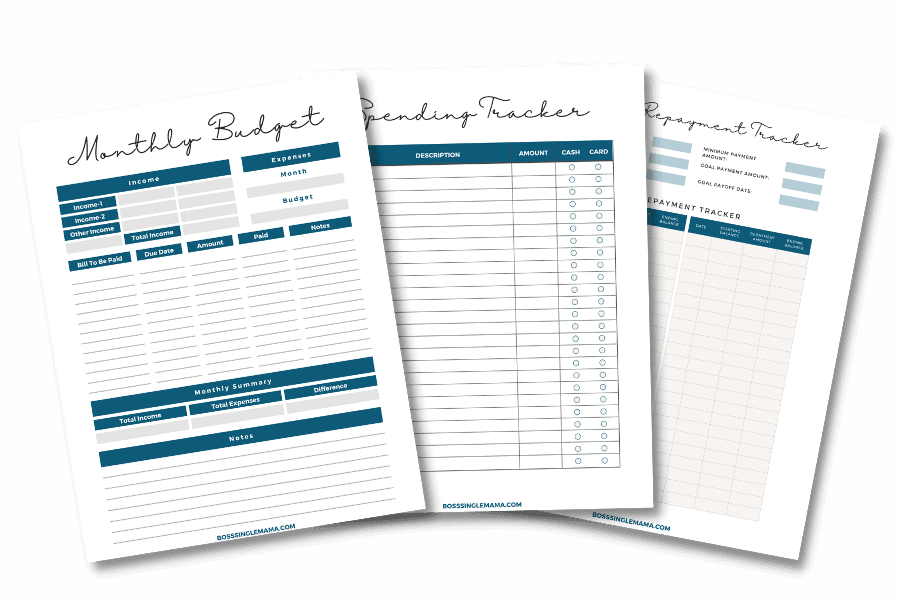Changing your spending habits can do the trick when you need or want to save money fast. Trying a spending freeze challenge can be a great way to potentially save a lot of money.
The first step is setting some spending freeze rules. We’ll walk you through how to set them if you want to try a temporary spending ban.
Key Takeaways
- A spending freeze can be a great way to save a decent amount of money fairly quickly by temporarily cutting out unnecessary expenses.
- Setting spending freeze rules can give you a roadmap to follow so that it’s easier to stick to the money challenge.
- Deciding what you plan to do with the money you save can help you make the most of a spending freeze.

LIKE FREE MONEY?
Here are some of my go-to apps for earning extra cash!
Survey Junkie. Earn up to $50 per survey just for sharing your opinions.
Swagbucks. Make money by playing games and watching videos. Join for free and get a $10 bonus when you sign up!
InboxDollars. Take surveys and get paid, no special skills or experience required!
Rakuten. Earn up to 40% cash back at hundreds of retailers, online or in stores. And get $30 for each person you refer, along with a $10 sign up bonus!
CashApp. Need a simple app for sending and receiving money? Get $5 free when you use code ‘VZXRXZN’ to join CashApp.
Table of Contents
What is a spending freeze?
A spending freeze means cutting out all unnecessary spending for a set period. You may also hear a spending freeze referred to as a no-spend challenge, spending fast, buying freeze, or a spending diet.
Going on a spending freeze doesn’t mean you stop paying the monthly bills. It just means that you cut down on discretionary spending and stop wasting money on things you don’t need. All the money you don’t spend, you save instead.
Looking for the best high yield savings option? Compare savings account rates online at top banks and credit unions now!
Why do a spending freeze?
The goal of a spending freeze is to allow you to spend less money so you can get some extra motivation to save. By avoiding spending money on things that are not basic needs, you can begin to develop good money habits that can help you get ahead financially.
Again, the idea is to stop spending money on frivolous things like going out to dinner, buying new clothes, or dropping money on concert tickets or movie tickets. A spending freeze is a chance to “reset” your budget and get some perspective on where your money is going.
Spending freezes are a useful tool for improving your personal finances but businesses and governments also rely on them.
For example, it’s not uncommon for local governments to use spending freezes to manage county finances. Spending on county operations may be limited to critical services only until the start of the new fiscal year.

Get Your Budget on Track
Grab these free printable budget templates to take control of your money!
How to set spending freeze rules
The great thing about spending freeze rules is that you can decide how to shape them. You’re not bound by what everyone else is doing; you can fit the money saving challenge to your situation.
With us so far? Now, here’s how to create some rules for a spending freeze once you’re ready to try it.
1. Set a goal
Before you get started with a spending freeze, ask yourself why you want to do it.
Sure, you might want to spend less money but can you be more specific? For example, do you want to try a spending freeze to:
- Save $1,000 for an emergency fund
- Put aside $500 for Christmas savings
- Add an extra $250 to your sinking funds
Having a specific, clear goal in mind can make it easier to set your spending freeze rules. Specifically, knowing how much you want to save can help you decide how long your spending freeze should last and which expenses to cut.
2. Choose a time frame
Spending freezes take place over a set period of time and it’s up to you to decide how short or long it should be. For example, you might choose a spending freeze that lasts:
- From Christmas until the end of the year
- Two days
- One week
- One month
Signing on for a no spend month can be a good option if you want to do a hard reset of your budget. But if you can’t go cold turkey on spending for an entire month then you might try starting slow, with a no spend week or weekend first.

3. Decide what you will spend money on
Once you know how long your spending freeze will last, it’s time to start making some money decisions. The first one is what expenses you’ll continue to pay during your spending freeze.
The list might include things like:
- Rent or mortgage payments
- Utility bills
- Insurance premiums
These are necessities so it’s okay to keep paying the bills. If you’d rather spend nothing at all to challenge yourself, then you might pay the bills ahead of your no spend start date.
That way, you don’t have to feel like you’re breaking your spending freeze rules.
4. Decide what you won’t spend money on
Once you know what you will spend money on, if anything, then everything else can go into the “won’t spend money on” category.
Examples of expenses you might cut out when setting spending freeze rules include:
- Meals out
- Fast food or coffee
- New clothes
- Entertainment, recreation, and hobbies
- Travel
- Home decor
- Toys or video games (if you have kids)
- In-app purchases
Should you plan to spend on groceries if you’re trying to freeze your budget?
It’s up to you to decide whether you will or won’t. If you don’t want to spend any money on groceries during the spending freeze, then you can plan your budget ahead to stock up the pantry before the freeze begins.
Reviewing your budget categories can help you figure out what to weed out. And remember that if a true emergency pops up, like a car repair, it’s okay to cut yourself some slack and pay for it even if it goes against the spending freeze rules you initially set.

Save More With Rocket Money
Stop overpaying and start saving!
Rocket Money is an all-in-one personal finance app that helps you find savings instantly, lower your bills, and keep more of your hard-earned cash.
It’s a simple way to build savings back into your budget every month, without getting nickel and dimed.
5. Have a plan for the money you save
One of the most important, but most overlooked, spending freeze rules is to decide what you want to do with the money you save.
If you don’t have a plan for that extra cash, you could end up spending. That would make doing a spending freeze a moot point.
Need some ideas for what to do with the money you save during a spending freeze? Here are a few options:
- Deposit it into a high-yield savings account to start a baby emergency fund.
- Open a CD account to save toward longer-term financial goals.
- Set up an Individual Retirement Account (IRA) to start saving for retirement.
- Contribute to a college savings account for your kids.
You don’t just have to save the money, though. If you’re deep in debt, you might use the money you didn’t spend to make an extra payment to one of your credit cards.
That’s the beauty of spending freeze rules–you can decide what works best for you.
Who should try a spending freeze?
A spending freeze can yield numerous benefits, if you’re committed to seeing it through. Understanding what you could get out of a spending freeze can help you decide if doing one is right for you.
You might try a spending freeze if you want to:
- Reset your financial habits. A spending freeze can be a great opportunity to evaluate your money habits. If you use spending as a coping mechanism, for example, or you don’t track your spending at all, a spending freeze is a good way to put the brakes on those bad habits temporarily.
- Save money. A lot of people want to save money but all too often don’t. A spending freeze allows you to trick yourself into saving since you’re not allowed to spend money on unnecessary items. How much extra money you’re able to save by freezing spending can depend on your budget and where your money normally goes.
- Prioritize needs and wants. Living below your means is important for saving money. When you live below your means, you’re not spending more than you make. If you’ve ever run out of money before the end of the month, a spending freeze can help you get perspective on what should be most important when planning your budget.
Pro tip: Use a budgeting app or a budgeting planner to keep track of spending.

Tips for saving money on a spending freeze
If you’ve never done any type of spending challenge, you might not know what to expect or which mistakes you should avoid. Jotting these money-saving hacks down in your digital planner or on a piece of paper can help you carve out the most savings possible during your spending break.
- Menu plan. Meal planning puts you in control of what you spend at the grocery store. If you’re organized enough, you could plan out some dirt cheap meals to cover the entirety of your spending freeze. If you’re not sure how to get started with meal planning, you can sign up for a free trial of $5 Meal Plan.
- Stock up. Planning ahead is a simple way to save money and avoid spending during a spending fast. For example, if you’re going to do a weeklong spending freeze you’d want to buy a week’s worth of groceries and toilet paper before the start of the freeze. You can also stock up on other critical items you might need, like diapers or formula if you have a baby at home, pet food and any necessary medications.
- Reuse and repurpose things around the house. Some of the biggest money waters are simple things you probably don’t even think about. Paper towels, for instance, can cost a decent amount of money and they just end up going in the trash! Using reusable hand towels, cloths and napkins instead is an easy way to increase savings.
- Use a cash-back app. If you’re stocking up on groceries or household essentials, you can save money before your spending freeze officially starts by shopping with cash-back apps. Apps like Ibotta and Rakuten pay you real cash back at partner grocery stores and retailers.
It’s also helpful to remove the temptation to spend.
At the start of the freeze, you might be optimistic about your ability to resist the urge to buy things you don’t need. As time goes on, however, you might find yourself in situations where it’s all too easy to spend. That’s especially true if you’re trying a one-month spending freeze.
Here are some clever ways for avoiding spending:
- Leave your debit card and debit cards at home, and only carry a small amount of cash.
- Consider freezing your credit cards in a block of ice if you’re itching to spend.
- Remove your debit or credit card information from online shopping portals.
- Unsubscribe from your favorite store or store’s email list so you’re not lured into shopping with inbox ads.
- Stay off social media so you’re not bombarded with shopping ads all day.
- Remember that a spending freeze extends to gift cards as well.
- If you received gift cards for the holidays or as birthday gifts, you should include those in your no-spend challenge. You could even go a step further and swap them for cash at a gift card exchange kiosk.
If you’re still struggling to stick to your spending freeze rules, here’s one more thing you can try: get an accountability partner.
An accountability partner can act as a check on your temptation to spend. You can ask a sibling, best friend, or someone else you trust to help you stay accountable throughout the challenge.
Telling other people that you’re freezing spending temporarily can also make it easier to say no to things that might require you to spend. You might get some funny looks or even questions about your choice but while everyone else is spending, you’ll be saving.
Spending freeze FAQs
When is the best time to try a spending freeze?
There is no right or wrong time to freeze spending. Some people may prefer to wait until January when they’re starting a new budget for a new year. Others may prefer to start a spending freeze in October or try a no spend November so they can save some quick cash for the holidays.
You can choose to start a spending freeze at any time, though you might want to give yourself a window in which to plan. So, for example, you could do your planning and stocking up from Monday to Sunday, then start your freeze the next week.

How much money can you save with a spending freeze?
The amount of money you save by freezing spending will depend largely on your budget. If you’re used to spending hundreds or even thousands of dollars each month on discretionary items, then you might be in for a real surprise when you add up just how much you’ve saved at the end of the freeze.
On the other hand, if you’ve already cut your budget down to the bare bones you might not see as much of a savings increase. Again, however, every little bit you’re able to add to savings matters.
Why is spending money so hard to quit?
Overspending can happen for different reasons. You might use spending as a crutch to make yourself feel better when you’re having a hard day. Or maybe you grew up watching your parents spend freely with no thought to the financial consequences.
The good news is that you don’t have to stay stuck in those old patterns. You can learn new financial habits, which can sometimes mean taking drastic measures like instituting a spending freeze. In some cases, jolting your system a little is the only way to realize that your spending habits need a wake-up call.

Final thoughts: A spending freeze can save you big
With inflationary costs making everything more expensive, a spending freeze could be an ideal way to add some money back to your budget. Whether you’re starting your spending freeze at the beginning of the year, the end of the year or somewhere in the middle, sticking with it can help you see some positive results when it comes to your finances.
Need more money tips? Read these posts next:
- Living on a Tight Budget? 15 Simple Ways to Save Money
- 50 15 5 Rule: How to Save More and Spend Less
- 200 Envelope Challenge (Save $5,100 in 200 Days!)
- Save Money Live Better (20 Easy Ways Save More This Year)
- How to Save 10000 in a Year [Simple Tips That Really Work!]
